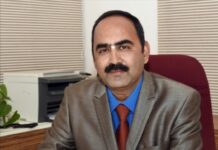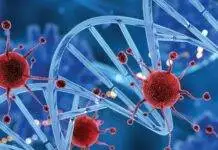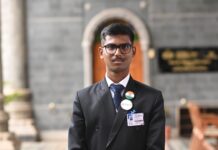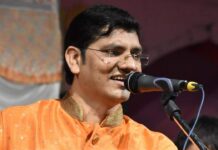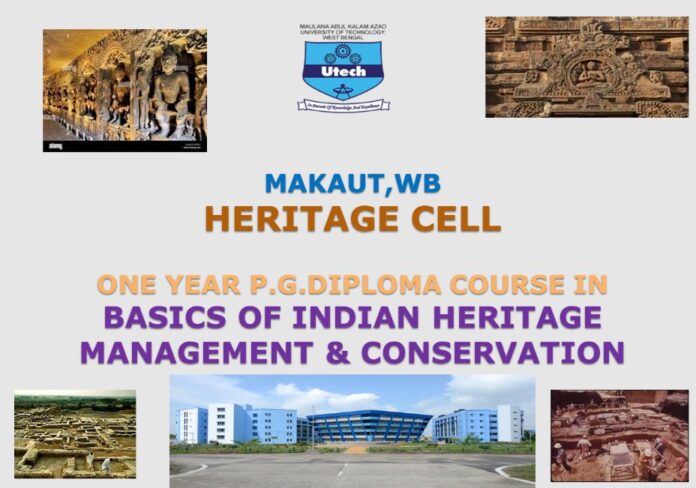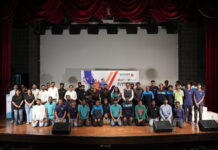Kolkata, 29th July, 2022: The Heritage Cell of Maulana Abul Kalam Azad University Technology (MAKAUT), WB has inaugurated its One-year P.G. Diploma course in Heritage Management and Conservation for the academic session 2022-23 on 29.07.2022 at its Salt Lake Campus. The Course will be conducted in online/offline blended mode.
The Heritage Cell of Maulana Abul Kalam Azad University Technology (MAKAUT), WB was established with the vision of ensuring the future of heritage study in India. The Heritage Cell wishes to conduct interdisciplinary studies in conservation, tourism and archaeology to safeguard our tangible heritage, with the help of introducing courses of this kind. The Cell aims to bring technical aspects of heritage study like chemical conservation, and structural conservation along with theoretical aspects under one academic department.
The Course was inaugurated through a Freshers’ Welcome in a blended mode in the presence of Hon’ble Vice-Chancellor of MAKAUT Prof. (Dr.) Saikat Maitra, Registrar Dr. Partha Pratim Lahiri, Controller of Examinations Dr. Subhashis Datta, Finance Officer Dr. Atri Bhowmik, Director of Heritage Cell Dr. Phanikanta Mishra, Dr. Somdatta Chakravortty, HoD, Department of Information Technology, MAKAUT and Director of IQAC and other students and staff of the University.
Prof. Maitra pointed out, “India has a glorious historical past. The course has been designed to make it more realistic and effective. There is ample scope for skill development in this area. If we can train professionals in this area, that will boost economic development also by enhancing conservation and tourism.”
Dr. Mishra, an eminent archaeologist said that for the first time in this country that a course of this kind has been introduced by a University.
The students are from varied backgrounds, including civil engineering, CSE, English, History, Archaeology and so on. Many are professors, students and other professionals.
ALSO READ : Aster RV Hospital conducts Drops of Hope- a blood donation drive
About the Course
Full Marks: 100
Semester 1: 2 Assignments will comprise of submission of thesis, lab work, field research and a presentation based report. Each will have 25 marks, making a total of 50 marks for the First Semester.
1 Assignment based report and presentation at mid-Semester in the month of September (25 marks)
1 Assignment based report and presentation at the end of Semester in the month of December (25 marks)
Semester 2: 2 Assignments will comprise of submission of thesis, lab work, field research and a presentation-based report. Each will have 25 marks, making a total of 50 marks for the Second Semester.
1 Assignment based report and presentation at mid-Semester in the month of March (25 marks)
1 Assignment based report and presentation at the end of the Semester in the month of July (25 marks)
At the end of the assessment, a certificate will be issued by MAKAUT, WB.
Assessment:
The examinations shall be conducted by the University’s internal and external examiners. The Diploma will also be awarded by the University.
Dr. Phani Kanta Mishra, Director of Heritage Cell, MAKAUT
Dr. Mishra obtained his Master’s degree in the year 1979 in Ancient Indian History from the Department of History, Patna University. He also completed his post-graduate diploma in archaeology from the School of Archaeology, New Delhi in 1982. He was awarded the Ph.D. degree for his work in the title Hoysala Art and Architecture from Bhopal University in the year 1986.
Dr. Mishra is the Retd. Regional Director (East) and Competent Authority of Heritage by-laws in the Archaeological Survey of India, Kolkata. At present, he is the Director of Heritage Cell, MAKAUT, WB.
Dr. Mishra began his professional career in the year 1981 as an Assistant Archaeologist in the Archaeological Survey of India and was posted at Bhopal circle.
Since his inception in the Archaeological Survey of India in 1981, he has participated actively in various archaeological explorations and excavations. Some of the sites excavated by him have had a profound impact on the history of India to the extent that many scholars are of the opinion that it has resulted in pushing back the antiquity of the Indian Civilization. His major discovery, the Buddhist Stupa at Deorkothar in the Rewa District of Madhya Pradesh was of great significance and was declared by the Govt. of India as a National Protected Site in 1996. The great doyen of archaeology Alexander Cunningham explored several sites in this area but missed this famous archaeological Buddhist site. Dr. Mishra carried out several archaeological excavations as Director at the famous Harappan site of Rakhigarhi (1997-98), and also at Jaffardih, Nalanda, Ghorakatora, Chaitru, Himachal Pradesh, Khajuraho in Madhya Pradesh. Then he proceeded to discover the 26th temple at Khajuraho named Beejamandal temple. Dr. Mishra did physical verification and confirmed the existence of the bowl of Lord Buddha, kept in the National Museum, Kabul
Dr. Mishra has a plethora of publications in national and international journals and has published several books. For his book ‘Rakhaldas Banerjee: Time, Life and Achievements of Forgotten Archaeologist’ he received the ‘Rakhaldas Banerjee memorial award, the West Bengal 2017’.
visit EasyShiksha for skill development.



